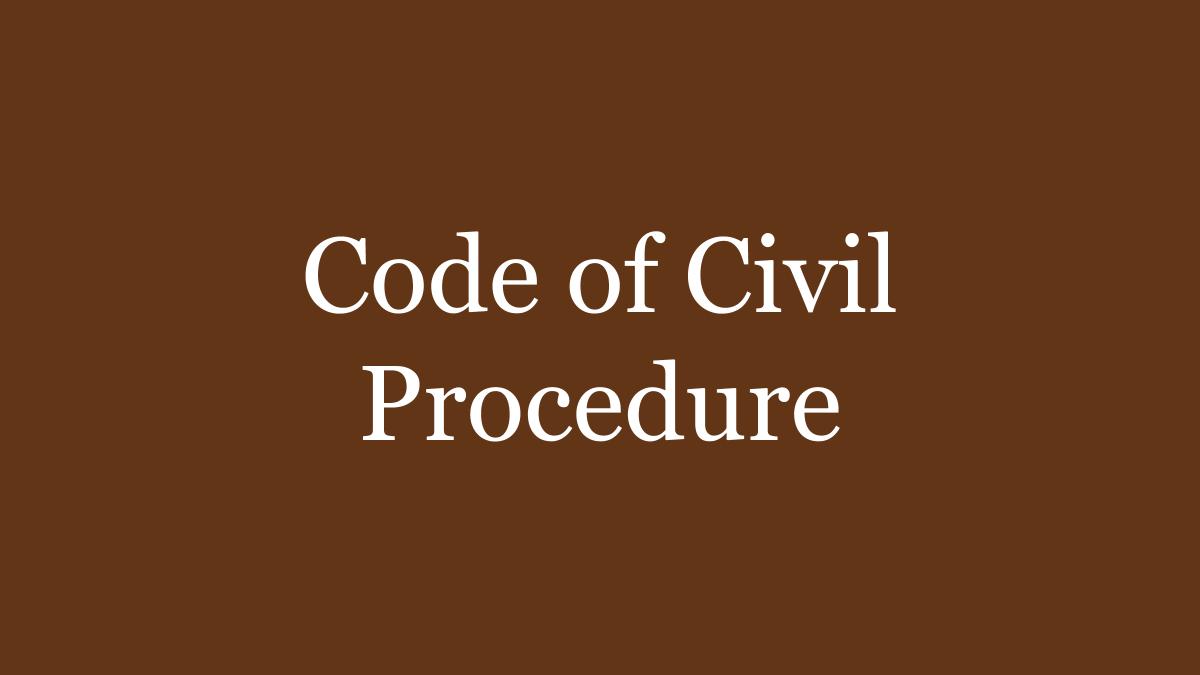Order XXIX Rule 1 Code of Civil procedure does not authorize the Directors to sign and verify pleading on behalf of Corporation unless the power is conferred on him by a resolution. This judgment was passed in the cased of C. Krishniah Chetty & Sons Private Limited vs. Deepali Company Private Limited [Crl.A.No.61/2021] by a Single Bench consisting of Hon’ble Justice Vishwajith Shetty.
The present commercial appeal was filed by the appellant who seeks to set aside the order passed by the LXXXII Addl. City Civil and Sessions Judge and Commercial Court, Bengaluru on I.A. Nos. 1 to 3. The appellant a Private Limited Company filed Commercial O.S. before the trial court prating for a judgment and decree of perpetual injunction restraining the respondents and persons claiming through or under them using the trademarks. The appellant’s company is engaged in the business of Gems and Jewellery. In the year 1869 C. Krishniah Chetty started the business and after his death, it was carried on by his son and grandson. Later on father of respondent no.3 and late husband of respondent no. 3 carried on the business. the appellant company was incorporated on 24.12.1979 and subsequently, it was included as a partner of a partnership firm in a deed on 03.01.1980. In a Board meeting on 19.03.1980 decision to dissolve the partnership firm was taken and the appellant company took over the business and assets, liabilities which included the trademark of the firm. Respondent no. 2 and 3 hold 50% of equity shares in the company. Respondent no.1 is a company engaged in the same business and respondent no. 2 and 3 are directors and shareholders of the same. respondent no. 4 is the wife of 2nd respondent and respondent no.5 is a company marketing the business of the respondent company online. Around the same time respondent had filed for various trademarks and some were rejected and on the plaint filed by the appellant, the intellectual property appellate board granted an interim order staying the operation of 1st respondent’s trademark.
The Karnataka High Court observed that the issue in hand is whether in the observed of the Board or CFO or any other principal officer of the Private Limited company instituted a suit /Appeal or any other legal proceedings on behalf of the company against its shareholders on the strength of order XXIX Rule 1 of the Code of Civil procedure.
The Karnataka High Court held that Order XXIX rule 1 only defines the person who is authorized to sign or verify pleadings on behalf of the company and it does not authorize any person mentioned to institute appeal or suits on behalf of the company. In cases of application of interim orders, the court should satisfy itself that prima facie there is a triable case. Unless the court is satisfied with the maintainability of the suit it cannot proceed further in the matter. Section 291 of the companies act, stipulates that the Board of Directors has been given all the powers of the company except those required in the General Meeting of the Company.
The court observed that in the present case, the dispute is admittedly interse between the two branches of the family and has questioned the authority of the CFO of the company to file the appeal in the absence of a Board Resolution duly authorizing him. In such a case when a suit has been filed under order XXIX Rule 1 of CPC it needs ratification which could be either express or implied. Further, the court held that the defect I filing a suit or an appeal in the absence of a board is a curable defect with a Board Resolution but the same would not be possible since the present case was filed by CFO against 50% of shareholders of the company. Thus, the High Court held that the provision of CPC does not authorize the Directors to sign and verify pleading on behalf of the Corporation.
The Karnataka High Court concluded by holding, “there is no prima facie case made out for a trial in the suit and in the absence of the party making out a case for trial, the prayer made by the said party for grant of interim order/interim injunctions in such a suit cannot be favoured.”


